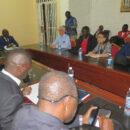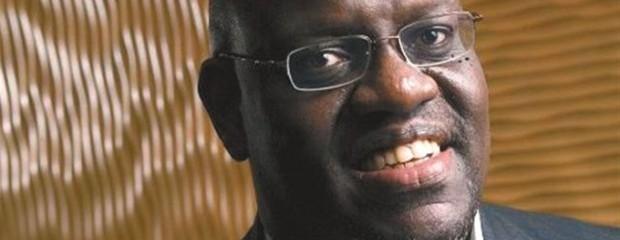Burundi elections: Nkurunziza unpopular but could hang on in May polls – By Benjamin Chemouni

 Over the last few years the narrowing of the political space in Burundi has been regularly denounced. With elections now less than three months away, what is surprising is the speed at which divisions within the ruling party are unravelling.
Over the last few years the narrowing of the political space in Burundi has been regularly denounced. With elections now less than three months away, what is surprising is the speed at which divisions within the ruling party are unravelling.
More than a year ago I pointed out that the centrifugal forces within the ruling CNDD-FDD would be the key determining factor surrounding the potential for violence during the electoral period. These forces, for long invisible, are now becoming more evident.
President Nkurunziza’s crumbling power
Whilst President Nkurunziza is yet to formally announce his candidacy for a third, and dubiously constitutional, presidential term, evidence, such as his failed attempt to change the constitution last year, leaves little doubt regarding this aspiration. Yet, such desire is encountering mounting resistance from within its own party.
The first obvious sign of tensions within the CNDD-FDD lies in the removal from power, last November, of two pillars of the regime: General Adolphe Nshimirimana, Head of the National Intelligence Services, and General Alain Guillaume Bunyoni, Head of the Civil Cabinet at the presidency. Although thought to be among the president’s closest allies, and consequently unsackable, they were moved to other jobs to appease the base of the party and the army, which is increasingly hostile towards these generals’ blatant corruption and clientelism.
Less than three months after his appointment, the new Head of Intelligence Services, General Godefroid Niyombare, was also fired. His removal occurred after he advised President Nkuruziza in a confidential note, since leaked, against running in 2015 “to preserve peace and stability” and to protect the chances the CNDD-FDD has of winning the elections. In the political arena, the recent opposition to a third term from a senior CNDD-FDD cadre, Richard Nimbesha, is likely to reflect the views of a silent, yet significant, proportion of CNDD-FDD members.
But the most glaring instance of division within Nkurunziza’s party is the escape, possibly with assistance of high-level supporters in the army, of Hussein Radjabu, the former chairman of the CNDD-FDD. Radjabu was imprisoned by Nkurunziza in 2007 in an attempt to tighten his grip on the party, but remains popular. His escape offers a credible alternative leadership option in a divided party were Nkurunziza to be ousted. It is unlikely however that Radjabu would be a presidential candidate. Being Muslim, he would find it difficult to gather many votes from the predominantly Christian population. Nevertheless, he would be able to re-cement the party and mobilize people around a new (and possibly puppet) candidate.
Those in the CNDD-FDD arguing against a third term share a common analysis: in order for the party to maximise its chance of staying in power, a change of president is necessary.
Such a strategy has some merit. Whilst the CNDD-FDD may retain a significant (yet uncertain) popularity, the same is not true of the president. According to a recent Afrobarometer survey, 62% of respondents were against a third term for Nkurunziza. Yet, 56% declared that they would vote for a CNDD-FDD candidate. In comparison, the second most favoured parties are the FNL and UPRONA, with only 3% of intended votes each. These results should be viewed with caution. First, given the deleterious political climate, respondents may favour the ruling party in the survey but vote differently. Second, 24% of respondents were indecisive or refused to answer.
The decreasing legitimacy of the CNDD-FDD
Although still significant, the popularity of the CNDD-FDD is at its lowest ebb since the end of the war. At the time, the CNDD-FDD enjoyed tremendous support, reflected its overwhelming local and national electoral success in the 2005 and 2010 polls. As a Hutu-dominated party it has portrayed itself as the country’s liberator from the quasi-constant ruling of the Tutsi-dominated UPRONA since independence. The ruling party’s historic popularity may not be enough to guarantee electoral success in the face of the appalling economic performance of the country since 2005 and the predatory practices of the ruling elite.
The extraordinary display of popular support to the journalist Bob Rugurika, head of “˜RPA’ – African Public Radio – at the occasion of his release from prison last month is a reminder of the CNDD-FDD’s dwindling popularity. Rugurika was imprisoned following his revelations regarding the murders of three Italian nuns in Bujumbura last September, in which Adolphe Nshimirimana, the former Head of Intelligence, was allegedly involved. Rugurika’s release brought unaccustomed scenes of jubilation to the country with crowds lining the route from Muramvia Prison to Bujumbura, the capital. The significance of the event lies not only in the extent of the popular celebrations, but it also shows that mobilization against the regime can go beyond urban anti-regime strongholds.
A (more) united opposition
Burundi’s political opposition is currently organised around two coalitions: ADC Ikibiri and the RANAC (National Rally for Change). The latter brings together the two most popular parties (and previous enemies) after the CNDD-FDD: the Tutsi-dominated UPRONA, and the FNL, heir of the PALIPEHUTU, a Hutu extremist party. Whilst this could be interpreted as a healthy sign that political divisions do not overlap with ethnic categories, one must be careful. Given the decreasing popularity of the CNDD-FDD, the re-organisation of the opposition could be the result of simple political opportunism.
Nevertheless, the CNDD-FDD seems to have fully appreciated the danger posed by the RANAC and has resort to the ethnic argument in an attempt to discredit such an alliance, qualified as “unnatural” by a CNDD-FDD MP. Although worrying, it is questionable to what extent such an argument resonates in the population, especially as the CNDD-FDD itself, until 2013, allied to the Tutsi-dominated UPRONA
Election scenarios
What are the consequences of these recent developments on the upcoming elections? Although their outcomes remain highly uncertain, it is possible to identify three main scenarios.
- Victory for the CNDD-FDD with Nkurunziza as president. Given the shrinking support around the president, this scenario is far from desirable as it is very unstable. It would also likely require elections to be rigged. Violence may obstruct the electoral process, as Nkurunziza running would increase the determination of the opposition to fight any irregularities and would foster divisions within the CNDD-FDD. In the long run, Nkurunziza and his cronies clinging onto power would likely result in increased corruption, clientelism and violence.
- Victory of the CNDD-FDD without Nkurunziza as president. This scenario is more stable as it would remove the main bone of contention in the ruling party, whilst offering some degree of change. Furthermore, such a scenario is likely to give only a small victory to the CNDD-FDD. It would allow the opposition to keep the ruling party’s predatory practices whilst not giving the CNDD-FDD an incentive to resort to violence. Yet, this requires that the CNDD-FDD can unite behind a new candidate without internal ructions.
- Defeat of the CNDD-FDD. This is probably the least likely scenario given the still significant popularity of the party and its likely attempts to rig elections, but it is nonetheless plausible, especially if the party splits. It is also the scenario with the most uncertain outcome. How would the CNDD-FDD respond to defeat given its penetration of society and its militarized youth wing, the Imborenakure? How would the winner or the winning coalition behave once in power?
In Burundi, the population is acutely aware of the risks surrounding the elections. Diaspora weddings in Burundi peaked last summer in anticipation of a possible climate of violence during the next “wedding season” this summer. In the countryside, the population is asking for the school holidays to start earlier so that the children are at home during the elections. Memories of the civil war remain strong, when schools were a target of choice. But worries are mixed with hope for change. Among the urban youth, Facebook and Whatsapp are extensively used to share analyses and rumours alike. For good or ill, passivity or disengagement is unlikely to play a part in the upcoming elections.
Benjamin Chemouni is a PhD candidate in the Department of International Development, at the London School of Economics and Political Science (LSE). His research explores the variation of state effectiveness between Rwanda and Burundi. @BChemouni







An election is nothing more than the advanced auction of stolen goods or the forthcoming Presidential Election in Burundi.
The citizens of Burundi are now embarking in on a civic social election process culminating in the election of a president. Citizen Candidates seeking public office in the ideal normative sense of prescriptive governance ought only to be seeking public office in order to serve all the good citizens of Burundi which ought to exclude serving and assisting only the ‘status quo’ elite economic social political oligarchy who only will continue to perpetuate the present ‘status quo’ ensuring that civic social change for the ordinary citizen is marginal at best. Burundi is a country blessed in natural pristine tropical forested beauty which has created and generated much wealth resources. Burundi is even more blessed with the Burundian citizen people, who often display exuberant entrepreneurial ambition.
Alas, this presidential election is now roiled both in fear as to uncertain security publics grounded in that the incumbent President wishes not to respect the constitution in seeking a third term of office. Burundi is as well suffering in the concentration in personal private wealth benefiting only the elite oligarchy. Civic social anxiety in Burundi is increasing and respect for rule of law and prescriptive strong robust institutions is unraveling.
Sadly, this 2015 Burundi Election for President gives ample profound credence to this pithy aphorism by H.L. Mencken who writing in the Baltimore Sun in 1936 suggests most strong that “An election is nothing more than the advanced auction of stolen goods »—–« in other words, government is a broker in pillage, and every election is a sort of advance auction sale of stolen goods”. Mencken was both alarmed and profoundly disquieted as to the lack of engaged inquisitive civic citizen participation in the civic electoral governance process which is predicated on an engaged articulate citizen who is not afraid nor adverse to hold the government to strict account. Mencken was even more concerned as to the increasing growth in blunt force power of the incumbent government to overwhelm the citizen with election promises and election bromides which in reality will signal no change in how government functions in serving the citizen. This is not merely an indigenous Burundian civic electoral issue of absolute concern. Rather, this presidential election in Burundi is a civic electoral matter of manifest urgency to all nation states who are engaged in governance conversations between the governed and those who govern.